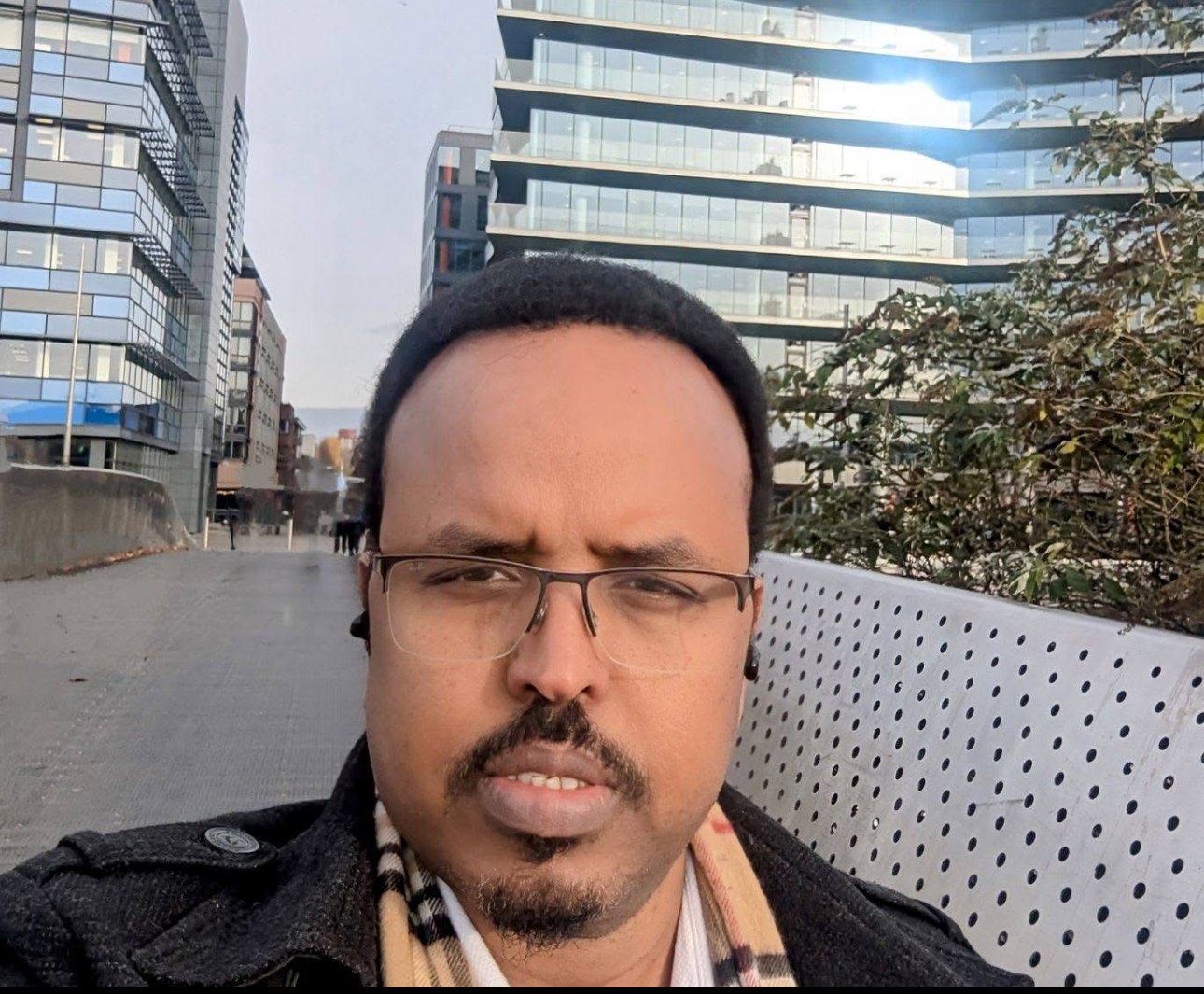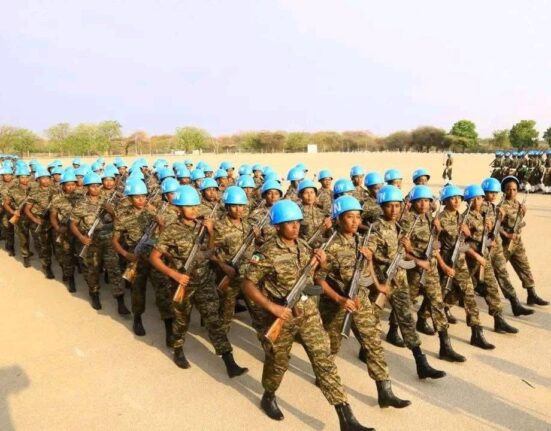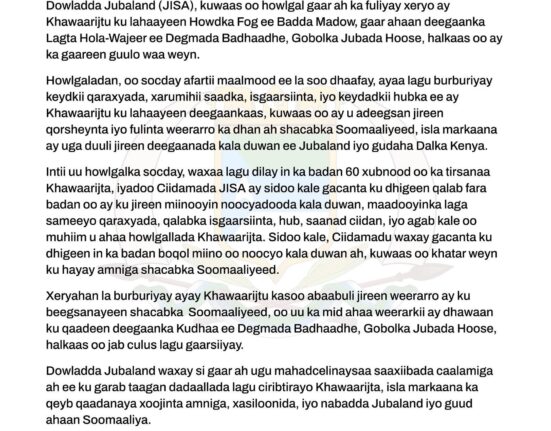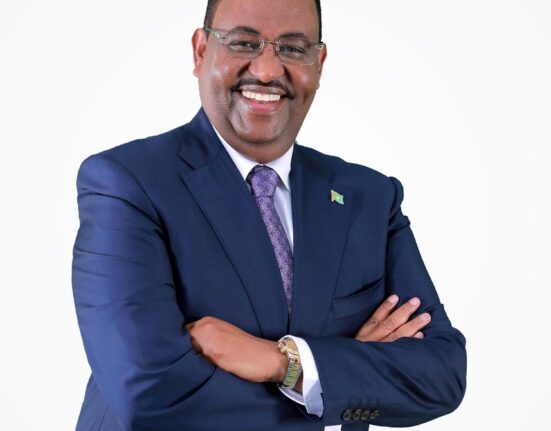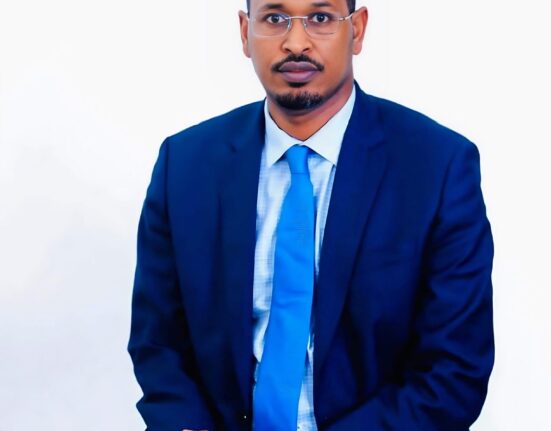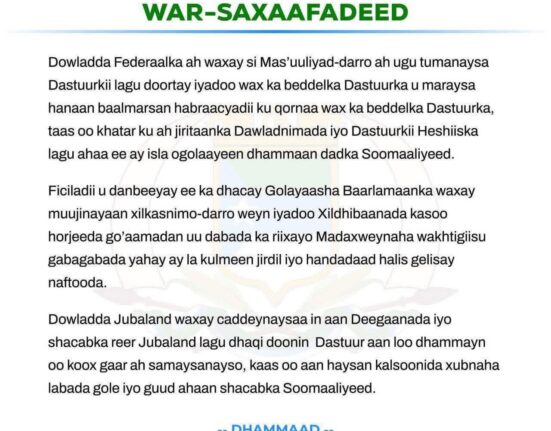By Abdirashid Ali Shua
The recent decision by the Prosperity Party’s Central Committee to withdraw the controversial administrative restructuring of the Somali Region has stirred heated debate. While Dr. Abdiwasac spoke truthfully in criticizing the lack of planning and resources behind the move, and Prime Minister Abiy Ahmed advised regional leaders to reverse course, I remain unconvinced that Somali Region President Mustafe Omer will comply.
Here’s why.
1. Playing the Hero Card
Mustafe suspects that Abiy is preparing to remove him from office and is simply waiting for the right opportunity. His strategy, therefore, is to appear as a heroic defender of Somali land so that, if or when he is removed, he can claim it was because he stood firm for his people. Many in the Somali Region doubt his sincerity in this “defense,” but with the right media campaign, he believes he can convince a large segment of the public and frame himself as the man who lived up to his own famous declaration: “We will not trade Somali land for a political seat.”
2. Securing Tribal Backing
By insisting on creating new zones, districts, and municipalities, Mustafe is not just making administrative changes—he is building political debt. His aim is for key clan leaders, including Federal Deputy Prime Minister Aadan Faarah and Finance Minister Ahmed Shide, to feel obligated to defend him. The narrative he is constructing is simple: “This is the man who gave your people new territories and resources.” This manipulative tactic forces influential figures to stand by him when political pressure mounts.
3. Aligning with the Opposition to Pressure Abiy
Mustafe has maintained a cordial relationship with key opposition figures in exile, most notably Jawar Mohammed. This alliance is useful for stirring unrest—similar to the protests that erupted in Oromia—and for fostering ethnic tensions in southern Ethiopia. The calculation is that such instability will weaken Abiy’s already strained grip on power while keeping the northern frontlines distracted with ongoing conflicts.
4. Preparing for the Post-Abiy Era
Mustafe sees Abiy’s political chapter nearing its end. He is already maneuvering to secure a place in whatever coalition replaces him. In the meantime, he seeks to keep Abiy busy with endless regional projects and distractions, ensuring that his own influence grows quietly in the background.
Final Thought
The withdrawal of the restructuring plan might look like a victory for reasoned governance, but Mustafe’s political instincts are survival-driven. He thrives in a narrative where he is both the “people’s defender” and a shrewd power broker. For this reason, I doubt he will willingly abandon a strategy that reinforces both his personal brand and his leverage over allies and opponents alike.


